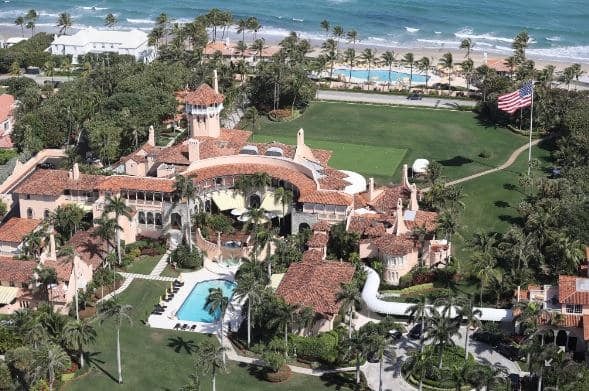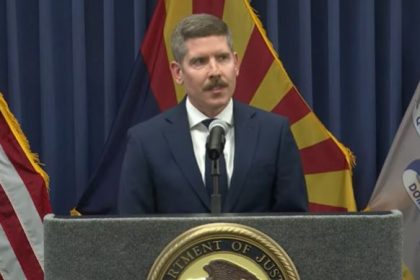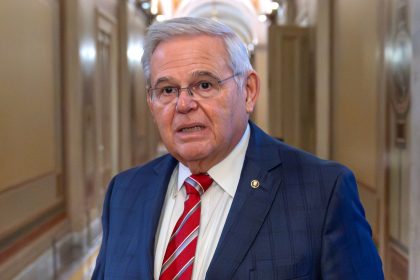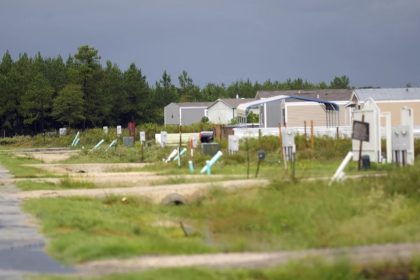Redacted Mar-a-Lago Search Warrant Affidavit Released

WASHINGTON — After months of back and forth with former President Donald Trump and his lawyer, the Justice Department felt it had “probable cause” to believe top secret and other classified documents were still being kept at Trump’s Florida residence, according to a heavily redacted affidavit used to secure a search warrant for the home.
The department released the mostly blacked-out copy of the affidavit shortly before noon Friday on the orders of federal Magistrate Judge Bruce Reinhart, who was responding to a request for the records by a number of news organizations, including The New York Times and The Associated Press.
On Thursday, Reinhart agreed to the release, but not before he allowed the department to redact portions of the document identifying witnesses and law enforcement personnel involved in the investigation.
While the documents don’t reveal very much new detail, they do establish a timeline for events.
According to the court filing, the seeds of the investigation were planted in February, when the Justice Department received a referral from the National Archives and Records Administration.
That referral stated that the National Archives had received 15 boxes that had been transported to Mar-a-Lago when the former president left office and that they contained, among other things, highly classified documents intermingled with other records.
Upon their initial review, FBI agents identified 184 unique documents bearing classification markings, including 67 documents marked as confidential, 92 documents marked as secret, and 25 documents marked as top secret.
Other documents were marked “HCS,” “FISA,” “ORCON,” “NOFORN,” and “SI,” which the unidentified agent attesting to the filing said were documents considered to contain national defense information.
Several of the documents were also marked with handwritten notes by the former president, the court papers say.
It was at that point that the FBI opened a criminal investigation to determine how the classified documents were removed from the White House and came to be stored at Trump’s home; whether there was any kind of “authorized” storage facility on site to store such sensitive materials; if there were any more documents at Mar-a-Lago or any other “unknown location”; and to identify anyone involved with the moving of the documents.
While all this was going on, Trump and his lawyers maintained that the former president had “readily and voluntarily” agreed to return the documents.
A letter from the Trump lawyer Evan Corcoran to Jay Bratt, the top counterintelligence official in the national security division at the Justice Department, also asserted Trump had absolute declassification authority and that to prosecute him would “implicate grave separation of powers issues.”
The Justice Department appears to answer the declassification claim in a footnote that explicitly states the law that prohibits the unlawful gathering, transmission or loss of defense information does not use the term “classified information.”
Instead, it criminalizes “the unlawful retention of ‘information related to the national defense.’”
Despite the claims made by Trump and others on his behalf, something in the blacked-out pages gave investigators probable cause to believe that additional documents containing classified national defense information were likely still at the Florida property, as were presidential records subject to the record retention requirements of the National Archives.
“There is also probable cause to believe that evidence of obstruction will be found at the premises,” the investigators wrote.
Trump responded to the release of the affidavit by calling it “a total public relations subterfuge by the FBI and DOJ.”
He went on to say that “Judge Bruce Reinhart should never have allowed the break-in of my home.”
Trump then brought up the fact that in June Reinhart recused himself from a lawsuit involving Trump and Hillary Clinton.
Trump is suing Clinton and other prominent Democrats over Russia collusion allegations stemming from the 2016 presidential campaign.
Six weeks after that recusal, Reinhart signed the warrant authorizing the feds to search Trump’s Mar-a-Lago estate.
“What’s changed?” Trump said. “Why hasn’t he recused himself from this case? Obama must be very proud of him right now!”
Politico and other news organizations have reported that Reinhart donated $2,000 in support of former President Barack Obama — one half to his campaign and the other to the Obama Victory Fund — in addition to $500 for former Florida Republican Gov. Jeb Bush’s 2016 presidential campaign.
However, Sen. Mark Warner, D-Va., chairman of the Senate Intelligence Committee released a statement that said, “[i]t appears, based on the affidavit unsealed this morning, that among the improperly handled documents at Mar-a-Lago were some of our most sensitive intelligence.”
This, he said, “is one reason the Senate Intelligence Committee has requested, on a bipartisan basis, a damage assessment of any national security threat posed by the mishandling of this information.”
“The Department of Justice investigation must be allowed to proceed without interference,” he concluded.
Dan can be reached at [email protected] and @DanMcCue






















